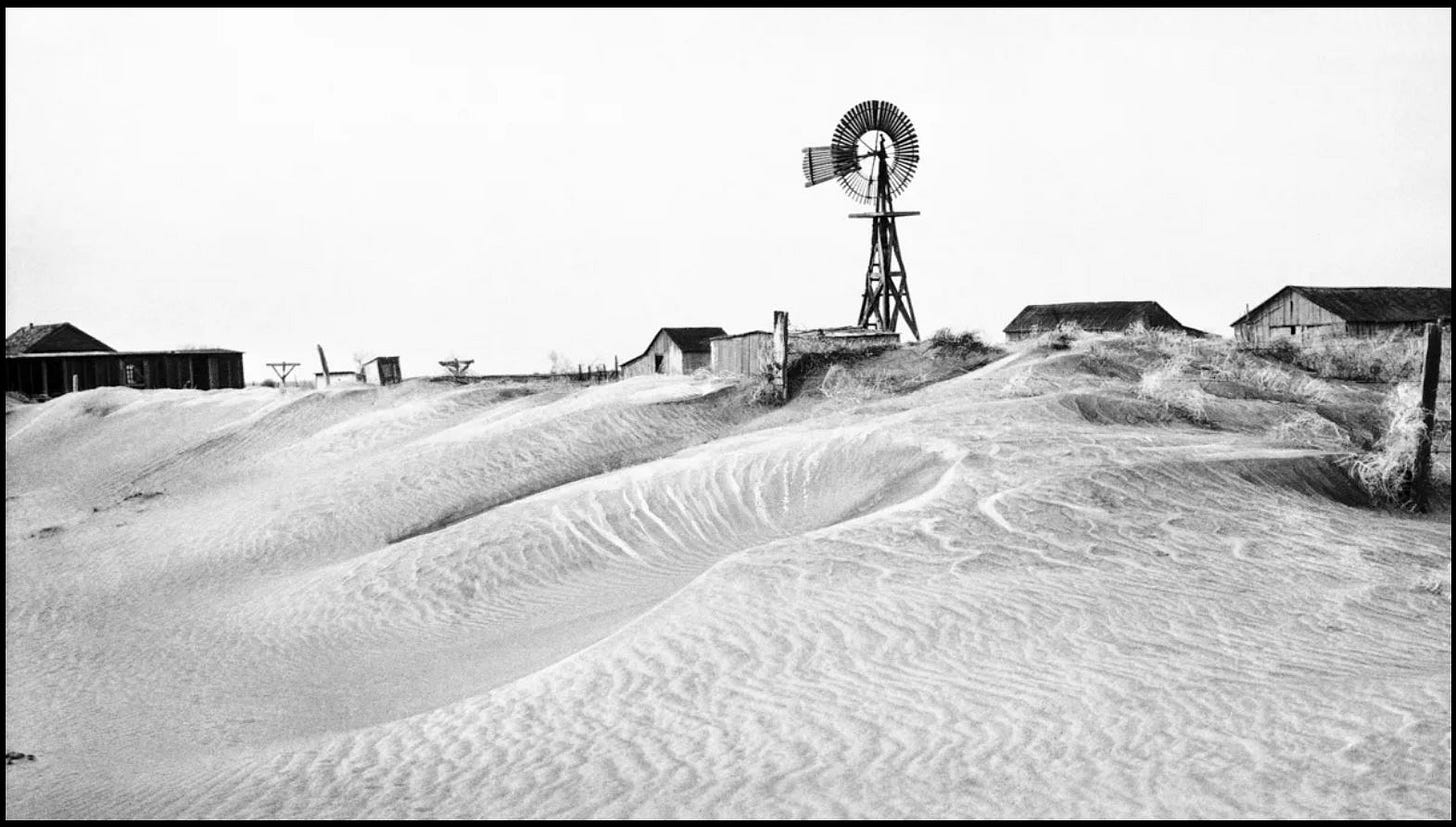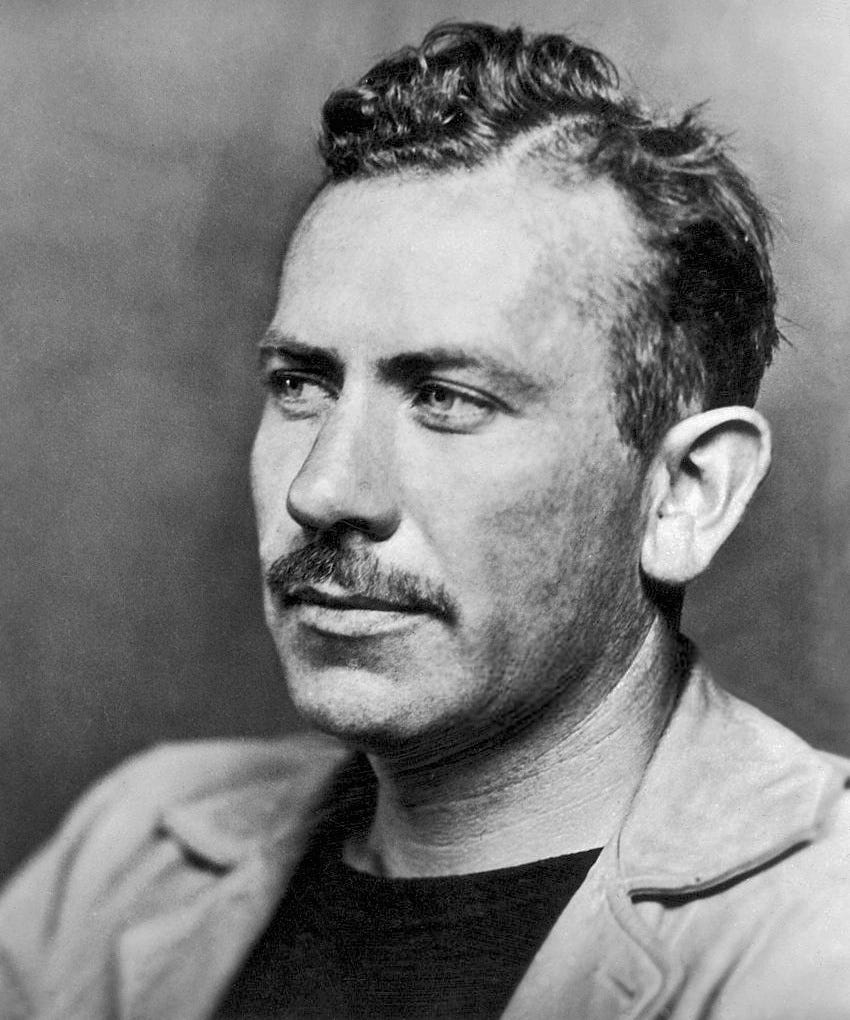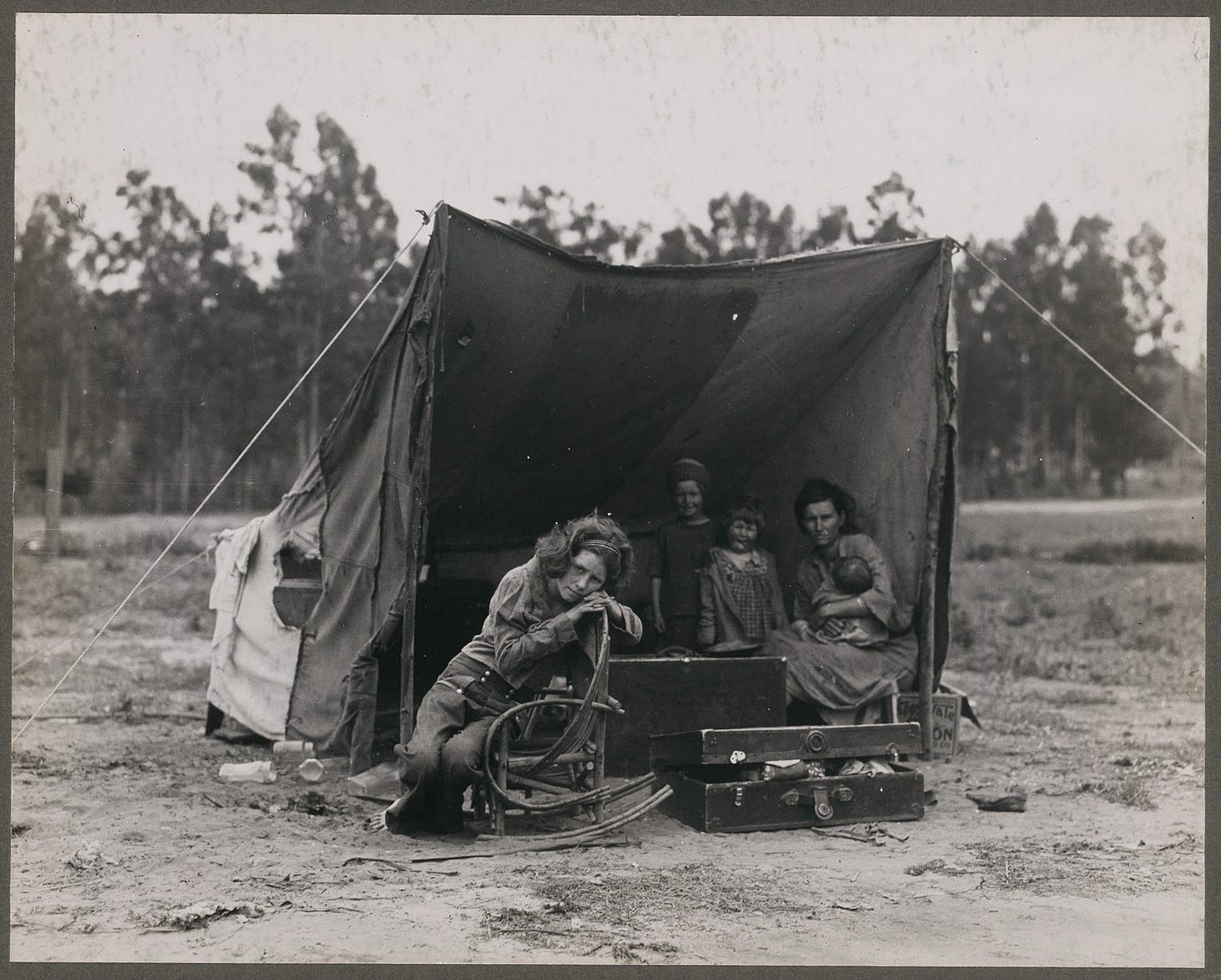Summer Reading and The Grapes of Wrath (1939)
Diving into literature offers a vital nutrient. And this here will NOT be a spoiler alert.
If you’re like me, reading classics is a way of priming the pump, filling the well, nourishing the psyche. Diving into literature can enrich the self, feeding the soul in a way that is different from non-fiction or spiritual texts or modern novels. Good literature - like some artwork, poetry, music - speaks to us in an archetypal fashion.
Nourishing lengthier reading refers to works that (a) are not on your phone, (b) are not news or social media, and (c) take longer than three to thirty minutes to complete, i.e. take focus. Our brains need continual practice; we need to use our critical thinking and imaginative muscles regularly, lest they atrophy. Also, regular steady reading can help us in our own writing and expression and communication skills in general. It is healthy, affordable, and of course, pleasurable.
Let’s return to the subject of classic literature. In the past twenty years, I’ve made an effort to revisit works that I missed in college or high school, or only vaguely remember. Some of the whoppers that took my breath away and affected me deeply in the past couple of decades include:
The Catcher in the Rye (1951), J.D. Salinger
The Adventures of Huckleberry Finn (1884), Mark Twain
Cat’s Cradle (1963), Kurt Vonnegut
1984 (1949), George Orwell
Brave New World (1932), Aldous Huxley
The Portrait of a Lady (1881), Henry James
On the Road (1957), Jack Kerouac
I’ve got a bookshelf in our library burgeoning with more, and I’m chunking my way through them over the years. What might you add to the list?
THE GRAPES OF WRATH (1939)
Now, let’s discuss the book I just finished. The book I feel should be required reading in order to understand some of the fundamentals of American classism.
The book I am referring to exquisitely illustrates the roots of modern economic “othering.” Of hardly disguised hatred resentment toward the working poor, and horribly, of what is referred to as “white trash.”
The book I am referring to teaches the reader about corporate pillaging of farmland and farm families. Of the divide and conquer tactics against unionizing. Of the Armageddon-level impact of rampaging greed.
The book I am referring to also offers us beauty, as real literature always gifts. Beauty as art. Beauty in the form of family. Of the human spirit. Of simplicity. Of strength. And of real moral character.
The book I am referring to is the Pulitzer Prize winning The Grapes of Wrath (1939) by John Steinbeck. Wrath, set in the Great Depression, tells the tale of a tenant farm family migrating to California during the Oklahoma Dust Bowl. It’s also a hidden mini-primer in agricultural economics. And it is a vivid depiction of what it takes to be a standup human being, especially in times of adversity.
Have you read it? Have you read it in the last decades? If not, I encourage you to do so. You won’t regret it.
Now, as much as I’d love to tell you my favorite parts of the book, or even my favorite quotes, I won’t. This here won’t be a spoiler alert. No, I want to leave this as it is. To just say, Hey, if you haven’t read it, do it.
Steinbeck, who won the 1962 Nobel Prize in Literature, is an amazingly accessible writer. No lofty language or convoluted narratives – you’ll dive in. It’s “easy reading,” so to speak – though I’d never say reading this book is “easy.” I’ve loved Steinbeck’s Cannery Row and East of Eden, too (Mice of Men coming soon).
But The Grapes of Wrath floored me. Just plain flattened me.
For those intimidated by a 432-page novel: my husband, a total bookworm, sometimes tag-teams his reading with an audio version. He’ll listen for a chapter or two, then return to the written word on Kindle (only 99 cents, fyi), and alternate. Keith says the audio version narrated by Dylan Baker is dynamite, available on Audible or Spotify.
(Me, I’m a purist – I like a print book and veer away even from Kindle. To each their own!)
As I read Wrath, epiphany after epiphany seared my heart and mind. I grasped so much more about our modern American economic fate. I had a renewed compassion for humanity and an invigorated love and understanding for farmers and blue collar workers. For those who work the land, and for those who continue to struggle against economic hardship and unnecessary, manipulated adversity.
I’d love to hear if you remember this book in a special way, or if you take it upon yourself to tackle it this summer. See you in the comments.
May all beings be happy and free.
With love and good reading,
Erin









Wow! What an invitation! I love your description and reasoning! I personally have read the book as a teenager but I remember nothing other than it being a great book. When I was young, I was reading tons of classics, and I studied English and American literature including many of the authors you mention. Funny fact- back in communism, such literature was available because it was showing what they would call "the decaying capitalism" 😂. Then in the last years- I went into other type of reading and I don't go back to the classics. There is a part of me that longs for that, and for poetry, and I know that you are spot on with this invitation. Such literature cannot be compared with any other reading.... So, let's see... I am not fully ready to dive in but maybe you are shifting something... I will report how I do on that.
It’s so funny you know because although I grew up in America, my kids are growing up in Australia, and yet in high school they are reading some of the same classics I did. To kill a Mockingbird. Slaughterhouse five. Even the grapes of wrath! it was so weird when my Australian stepchildren were talking about Lenny and George … that’s when I realised that that’s what they were reading in their English class in year 10. Since this is the second time recently that this novel has appeared on my radar, I reckon it’s a sign to reread it, so thank you!